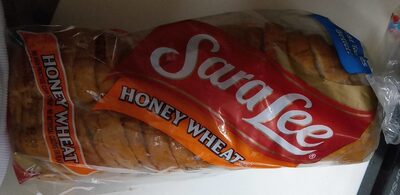
Barcode: 072945601369
Honey wheat bread
HALAL
📝 Reason: All ingredients listed are either plant-based or minerals, which are generally considered Halal according to Islamic dietary guidelines. No Haram ingredients or doubtful E-codes were identified in the product. Therefore, the product is classified as Halal.
🏷️ Category: Plant Based Foods And Beverages, Plant Based Foods, Cereals And Potatoes, Breads, White Breads, Wheat Breads
📄 Certificates: N, /, A, Vegetarisch
Ingredients:
Details
Understanding the Halal Status of Honey Wheat Bread
When it comes to dietary choices, it’s essential to ensure that the foods we consume align with our beliefs and values. One question that arises frequently among the Muslim community is whether certain products are Halal. In this article, we delve into the Halal status of Honey Wheat Bread and explore its ingredients to provide clarity.
What is Halal?
Halal, an Arabic term meaning ‘permissible’, refers to food and drinks that are allowed under Islamic law. The consumption of Halal products is essential to Muslims worldwide, as it plays a significant role in their foods and lifestyle choices.
Honey Wheat Bread: An Overview
The Honey Wheat Bread in question comprises a variety of ingredients. The good news is that all listed ingredients classify as Halal. The main components include enriched wheat flour, water, honey, and whole wheat flour, which are plant-based and compliant with Halal dietary guidelines.
Detailed Ingredient Analysis
Let’s take a closer look at each ingredient in the Honey Wheat Bread:
- Enriched Wheat Flour: A plant-based ingredient that serves as the primary flour base for many breads. It is generally considered Halal.
- Water: Essential for life and universally recognized as Halal.
- Honey: A natural product derived from bees, wholly Halal.
- Whole Wheat Flour: Another plant-based ingredient that is Halal.
- Yeast: A microorganism used in the fermentation process, typically considered Halal.
- Wheat Gluten: Derived from wheat, serving as a plant-based protein; thus, it’s Halal.
- Soybean Oil: This plant-based oil is generally viewed as Halal.
- Wheat Bran: A byproduct of wheat milling and is also considered Halal.
- Sugar: Generally derived from sugar cane or sugar beet, hence it is Halal.
- Salt: A mineral and universally regarded as Halal.
- Calcium Propionate (E282): A food preservative, which is Halal.
- Sorbic Acid (E200): Another preservative, considered Halal.
- DATEM: An emulsifier widely accepted as Halal.
- Monoglycerides: An emulsifier derived from fats, typically Halal unless otherwise indicated.
- Cellulose Gum: A thickening agent derived from plant sources, Halal.
- Natural Flavors: Generally Halal, provided they do not derive from Haram sources; with no supernatural ingredients explicitly noted, it remains Halal.
- Monocalcium Phosphate: A leavening agent, widely recognized as Halal.
- Calcium Sulfate: A mineral that is universally considered Halal.
- Soy Lecithin: An emulsifier derived from soy, typically classified as Halal.
- Citric Acid: A naturally occurring acid, usually Halal.
- Grain Vinegar: A product of fermentation, considered Halal.
- Potassium Iodate: A mineral, universally Halal.
Conclusion: A Halal Choice
After reviewing the components and analyzing each ingredient, we can confidently say that Honey Wheat Bread aligns with Halal dietary requirements. It is comprised of ingredients that are derived from plants or minerals, with no Haram elements identified. Such a wholesome option narrates a story of conscious choices for those who value Halal cuisine.
This Honey Wheat Bread not only caters to vegetarian diets but also resonates well with Halal certification needs, making it a suitable option for many households. Whether you’re enjoying a simple toast for breakfast or crafting a gourmet sandwich, this product stands as a reliable choice for Halal consumers.
